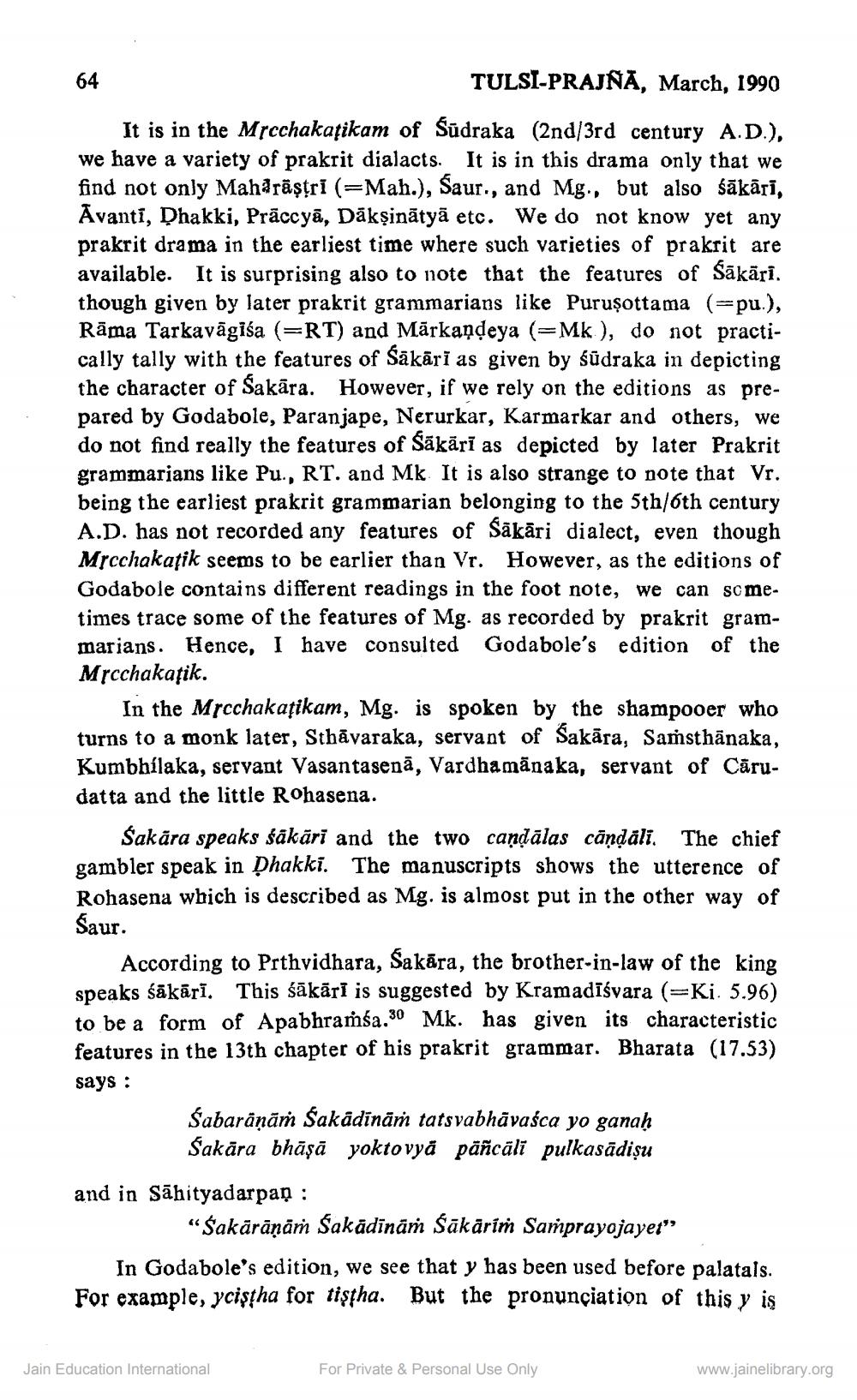________________
TULSI-PRAJNA, March, 1990
It is in the Mrcchakafikam of Sūdraka (2nd/3rd century A.D.), we have a variety of prakrit dialacts. It is in this drama only that we find not only Mahārāștri (=Mah.), Saur., and Mg., but also śākārī, Āvanti, Dhakki, Prāccyā, Däkşinātyā etc. We do not know yet any prakrit drama in the earliest time where such varieties of prakrit are available. It is surprising also to note that the features of Sākāri. though given by later prakrit grammarians like Purușottama (=pu.), Rāma Tarkavāgisa (=RT) and Mārkaņdeya (=Mk), do not practically tally with the features of Śākāri as given by śūdraka in depicting the character of Sakāra. However, if we rely on the editions as prepared by Godabole, Paranjape, Nerurkar, Karmarkar and others, we do not find really the features of Sākārī as depicted by later Prakrit grammarians like Pu., RT. and Mk It is also strange to note that Vr. being the earliest prakrit grammarian belonging to the 5th/6th century A.D. has not recorded any features of Sākāri dialect, even though Mrcchakațik seems to be earlier than Vr. However, as the editions of Godabole contains different readings in the foot note, we can sometimes trace some of the features of Mg. as recorded by prakrit grammarians. Hence, I have consulted Godabole's edition of the Mrcchakaţik.
In the Mrcchakațikam, Mg. is spoken by the shampooer who turns to a monk later, Sthāvaraka, servant of Sakāra, Samsthānaka, Kumbhílaka, servant Vasantasenā, Vardhamānaka, servant of Cārudatta and the little Rohasena.
Sakāra speaks sākāri and the two candālas cāņdāli. The chief gambler speak in Dhakki. The manuscripts shows the utterence of Rohasena wbich is described as Mg. is almost put in the other way of Saur.
According to Prthvidhara, Sakāra, the brother-in-law of the king speaks sākāsī. This šākārī is suggested by Kramadīśvara (=Ki. 5.96) to be a form of Apabhraíša.30 Mk. has given its characteristic features in the 13th chapter of his prakrit grammar. Bharata (17.53) says :
Sabarāņāṁ Śakādināṁ tatsvabhāvaśca yo ganah sakāra bhāṣā yokto vyā pāñcāli pulkasādiņu
and in Sāhityadarpan :
"Sakārānāṁ Śakādīnāṁ Śākārim Saṁprayojayer" In Godabole's edition, we see that y has been used before palatals. For example, yciştha for tiştha. But the pronunciation of this y is
Jain Education International
For Private & Personal Use Only
www.jainelibrary.org




